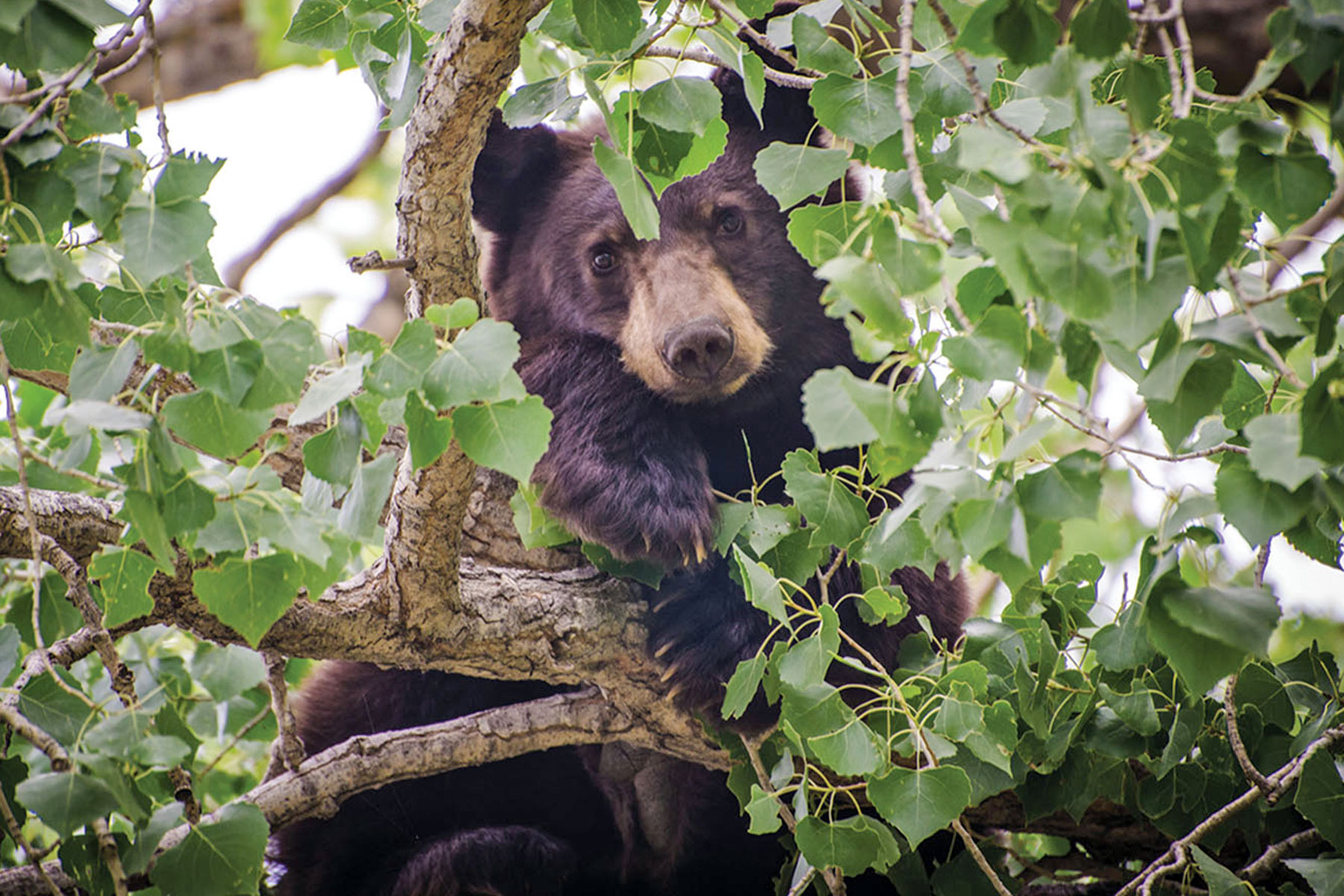Over the past two weeks the Wildlife Division has been receiving an increasing number of calls about bears accessing trash cans in local neighborhoods. The Ignacio Peak and Cedar Point neighborhoods have been particularly hard hit. The Wildlife Division urges people to be aware of the potential for bears to be attracted to their properties if food attractants are available to them. Unsecured trash is the number one reason we are receiving calls at this time. Black bears actively forage from spring thru summer and especially in the fall, and they will take advantage of easy food wherever and whenever it is available.
Black bears that habitually receive food from human sources often become used to close contact with people and begin to lose their natural fear of people. These bears will return to areas where they have found food in the past, so it is important to keep all food sources out of reach.
Only put trash carts out the morning of scheduled pick-up. If you need to store trash, please store it securely out of reach of bears and other wildlife. Tribal Members may contact the Southern Ute Utilities Division to upgrade their trash carts to bear-proof models for a small additional monthly expense. If used properly, these upgraded carts are nearly 100% effective at keeping all wildlife out of your trash. Additionally, we ask people to store pet food indoors and pick up any uneaten food remaining in pet dishes in the evening. Remove bird feeders each evening. Also, store barbecue grills indoors and avoid keeping full freezers outside your home.
The Southern Ute Division of Wildlife Resource Management believes in removing food attractants prior to taking steps to remove a bear. If attractants aren’t removed, then another bear or other wildlife will likely continue to take advantage of the source. We consider relocating bears a last resort, however sometimes it is necessary, and we will work with homeowners in these instances.
If people see a black bear from a distance, it is important that they not approach it. If a close encounter occurs, some general guidelines to follow are:
- Stay Calm.
- Stop and back away slowly while facing the bear.
- Avoid direct eye contact. Direct eye contact may be perceived as threatening by a black bear.
- Speak softly to identify yourself as a human and to show that you are not a threat to the bear.
- Fight back if the bear attacks.
If you have questions or for more information, please contact the Southern Ute Division of Wildlife Resource Management at 970-563-0130.
To report black bear encounters, contact the Southern Ute Division of Wildlife Resource Management at 970-563-0130; the Southern Ute Tribal Rangers at 970-563-0133; or Southern Ute Dispatch at 970-563-4401.

